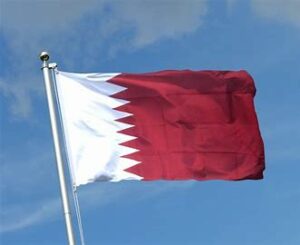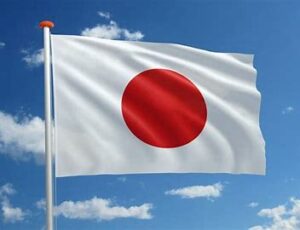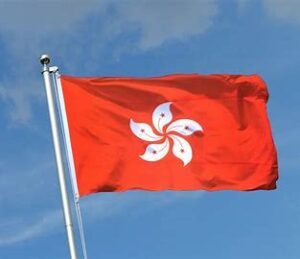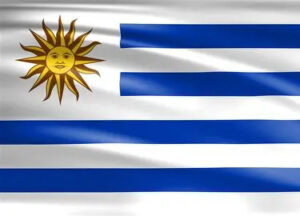
Qatar Issues Cabinet Resolution for Detailed IIR and QDMTT Implementation Rules
On February 12, 2026, Cabinet Resolution No. (2) of 2026, was published in the Official Gazette to provide for the detailed implementation of the IIR and QDMTT in Qatar.
Any tax incurred under a QDMTT is credited against GloBE top-up tax in the GloBE top-up tax calculation. As domestic jurisdictions are given more flexibility over the design of QDMTTs than the standard GloBE top-up tax calculation, it may be the case that the QDMTT does not fully cover any GloBE top-up tax that may be due (eg due to the QDMTT using a different accounting standard to the UPE accounting standard). In this case, any remaining top-up tax after the QDMTT credit is then payable under the GloBE rules. This would, however, mean that MNEs would need to prepare two separate calculations.
The QDMTT Safe Harbour excludes the application of the GloBE Rules in other jurisdictions by deeming the Top-up Tax payable under the GloBE Rules to be nil where top-up tax is levied under a QDMTT. The MNE Group therefore only needs to undertake one calculation.
However, this then opens up a risk that the QDMTT tax may be much less than any GloBE top-up tax that would have been due. This would undermine the international application of the GloBE rules. Therefore, to qualify for the QDMTT safe harbour a QDMTT must meet three conditions:
1. QDMTT Accounting Standard
The GloBE Rules generally require the MNE Group to base its GloBE calculations on the accounts used for preparing the Consolidated Financial Statements of the UPE for purposes of computing the GloBE Income or Loss of each Constituent Entity.
However, the definition of a QDMTT under the Model Rules expressly permits, however, that the calculations may be based on a Local Financial Accounting Standard.
The use of a Local Financial Accounting Standard is restricted for the purposes of the QDMTT Safe Harbour there are restrictions on the use of a Local Financial Accounting Standard. In particular the Local Financial Accounting Standard of the QDMTT jurisdiction can only be used where all of the Constituent Entities located in that jurisdiction have financial accounts based on that standard and:
– are required to keep or use such accounts under a domestic corporate or tax law; or
– such financial accounts are subject to an external financial audit
If this requirement wasn’t met the domestic minimum tax may still be a QDMTT but the QDMTT safe harbour would not apply.
2. Consistency Standard
The Consistency Standard requires the QDMTT computations to be the same as the computations required under the GloBE Rules except where the Commentary to the QDMTT definition explicitly requires a QDMTT to depart from the GloBE Rules or where the Inclusive Framework decides that an optional variation that departs from the GloBE Rules still meets the standard. This includes where a QDMTT:
– does not include or has a more limited Substance-based Income Exclusion;
– does not include or has a more limited De Minimis Exclusion; or
– has a minimum tax rate above 15%.
There is also a ‘Switch-Off Rule’ that prevents an MNE Group from applying the safe harbour to all or some Constituent Entities located or created in the QDMTT jurisdiction and requires the MNE Group to switch to the general credit method for the offset of the QDMTT.
This applies where:
– A QDMTT jurisdiction decides not to impose a QDMTT on Flow-through Entities created in its jurisdiction;
– A QDMTT jurisdiction decides not to impose a QDMTT on Investment Entities subject to Articles 7.4, 7.5, and 7.6 of the GloBE Rules (Provisions for the Effective Tax Rate Computation for Investment Entities, Investment Entity Tax Transparency Election, or the Taxable Distribution Method Election);
– A QDMTT jurisdiction decides to adopt the UTPR exclusion for MNEs in their initial phase of international activity; or
– A QDMTT jurisdiction includes members of a JV Group (which includes Joint Ventures) within the scope of the QDMTT but imposes the liability on Constituent Entities of the main group instead of directly on the members of the JV Group.
– The January 2025 OECD Administrative Guidance also provides that the Switch-Off rule applies to jurisdictions that allow certain DTA reversals arising from tax benefits provided by General Government to be taken into account for adjusted covered taxes (or for Transitional CbCR Safe Harbour purposes).
The consistency standard, (and the switch off rule to turn off the QDMTT safe harbour) is not specific to any MNE Group or entity. It is a jurisdictional evaluation that takes place in the peer review process. The QDMTT is assessed against the standard to see if it qualifies.
In most cases a QDMTT would either meet the standard or it wouldn’t. In certain cases, the application of the Switch off rule to specific entities could apply to just certain types of entities.
For instance, a jurisdiction that didn’t apply a QDMTT to investment entities under S7.4 -7.6 would apply the switch off rule so the jurisdiction would still meet the consistency standard but the safe harbour wouldn’t apply to those entities and the normal credit basis against GloBE top up tax would apply.
3. Administration Standard
The Administration Standard requires the QDMTT jurisdiction to meet the requirements of an on-going monitoring process similar to the one applicable to jurisdictions implementing the GloBE Rules.
The Inclusive Framework will rely on the peer review process to determine whether a QDMTT meets these additional standards and thereby qualifies for the QDMTT Safe Harbour.
QDMTT Design Features that Prohibit the Safe Harbour
Some design features of a QDMTT can prohibit the QDMTT Safe Harbour applying due to the consistency standard.
For instance, jurisdictions do not need to include all GloBE income adjustments where those adjustments are not relevant for their domestic tax system. Eg a QDMTT jurisdiction that follows the accounting treatment of stock-based compensation has the option not to include the stock-based income election in its QDMTT.
However, a QDMTT will not meet the Consistency Standard where the QDMTT legislation does not include all the GloBE adjustments. In the case where the Consistency Standard is not met and the QDMTT does not qualify for the Safe Harbour, the Switch-off Rule is not relevant.
On January 15, 2025, the OECD issued Administrative Guidance that included a central record of legislation with transitional qualified status for both the IIR (QIIRs) and DMTTs (QDMTTs), including the QDMTT Safe Harbour. This was updated on March 31, 2025 and August 18, 2025.

On February 12, 2026, Cabinet Resolution No. (2) of 2026, was published in the Official Gazette to provide for the detailed implementation of the IIR and QDMTT in Qatar.

On February 6, 2026, the Italian Revenue Agency approved the model for the GloBE tax Return. This is a consolidated form with information on the calculation of top-up tax under the IIR, UTPR and QDMTT.

On January 29, 2026, Canada’s Department of Finance released draft GMTA technical amendments introducing an elective private investment entity de-consolidation rule for Pillar Two/GMTA purposes.

On January 30, 2026, Japan’s National Tax Agency issued a law implementation circular clarifying certain aspects of its UTPR and QDMTT.

In January 2026, Canada issued the filing procedures for the GIR, GMT Return and the Double Filing Relief Notification.

On January 19, 2026, South Korea issued a Draft Law to amend the Enforcement Decree to the International Tax Adjustment Act. This provides for detailed provisions for the application of the QDMTT and will also extend the Transitional CbCR Safe Harbour by 1 year (as provided in the January 2026 OECD Side-by-Side Package).

On January 19, 2026, the Hong Kong Inland Revenue Department opened its E-filing portal for the submission of Top-Up Tax Notifications

On December 31, 2025, Israel enacted Law No. Law 5776-2025 on the Minimum Corporate Tax for Multinational Groups. The enacted law contains some significant changes from the previous draft law.

On December 29, 2025, Uruguay’s President issued Decree No. 325/025, to provide for exemptions from the QDMTT for entities covered by a tax stability agreement. Note that Law N° 20446 to enact the QDMTT was published in the Official Gazette on January 8, 2026.
| Cookie | Duration | Description |
|---|---|---|
| cookielawinfo-checkbox-analytics | 11 months | This cookie is set by GDPR Cookie Consent plugin. The cookie is used to store the user consent for the cookies in the category "Analytics". |
| cookielawinfo-checkbox-functional | 11 months | The cookie is set by GDPR cookie consent to record the user consent for the cookies in the category "Functional". |
| cookielawinfo-checkbox-necessary | 11 months | This cookie is set by GDPR Cookie Consent plugin. The cookies is used to store the user consent for the cookies in the category "Necessary". |
| cookielawinfo-checkbox-others | 11 months | This cookie is set by GDPR Cookie Consent plugin. The cookie is used to store the user consent for the cookies in the category "Other. |
| cookielawinfo-checkbox-performance | 11 months | This cookie is set by GDPR Cookie Consent plugin. The cookie is used to store the user consent for the cookies in the category "Performance". |
| viewed_cookie_policy | 11 months | The cookie is set by the GDPR Cookie Consent plugin and is used to store whether or not user has consented to the use of cookies. It does not store any personal data. |